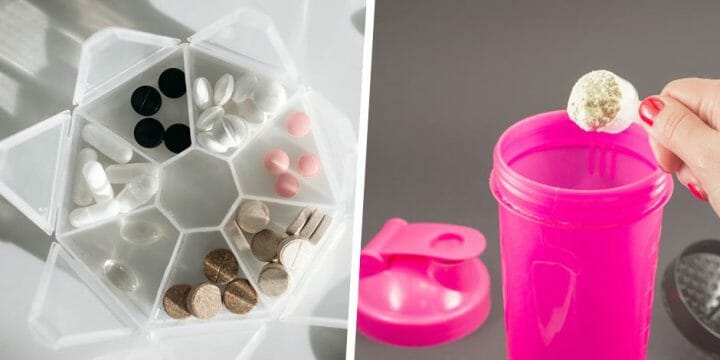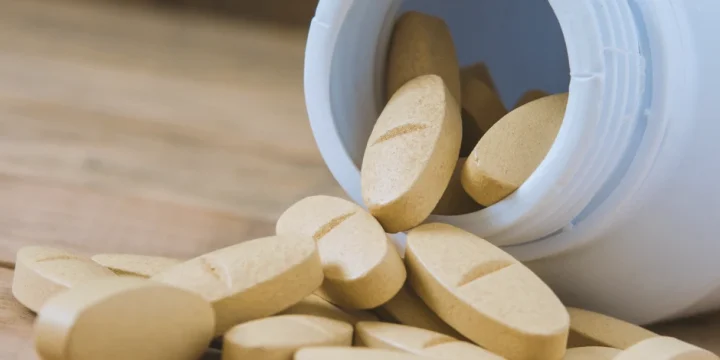I began penning this article following an insightful discussion with a dietitian deeply involved in researching lectin exposure among her clients.
As a doctor, my own health journey has been significantly impacted by the adverse effects of lectins. This isn't just theoretical; my personal experiences with immune challenges and weight fluctuations mirror the scientific evidence on lectins' impact.
It's crucial that everyone understands this evidence to avoid lectins' harmful effects. Initially, I was drawn to quick-fix supplements, but I've come to realize that true wellness lies in natural solutions.
The lectin blockers I endorse are the result of thorough experimentation and a dedication to real results, offering more than mere placebo effects.
Quick Summary
- The six best natural lectin blockers and their mechanisms include okra binding lectins with its polysaccharides, bladderwrack using its unique compounds, cranberries offering D-mannose, crustaceans providing glucosamine, kiwi aiding in mucin production, and pigs' feet rich in glucosamine.
- Lectins are associated with health issues like immune responses and weight fluctuations, as supported by scientific studies.
- Incorporating natural lectin blockers into one's diet is an effective strategy for mitigating the adverse effects of lectins.
- Personally, I find the use of natural lectin blockers to be a wise and health-conscious choice for those looking to improve their dietary habits.
How Do You Neutralize Lectins Naturally?
You neutralize lectins naturally by eating natural lectin blockers such as okra, bladderwrack, cranberries, crustaceans, kiwi, and pig's feet.
In our journey to mitigate the effects of lectins, it's crucial to spotlight the unsung heroes - our gut microbiota.
A robust and diverse gut ecosystem not only aids in digestion but plays a pivotal role in neutralizing harmful lectins, turning them into allies rather than foes.
1. Okra

Having incorporated okra into my patients meals, they experienced its rich raw polysaccharide content first-hand. This unique carbohydrate, as confirmed by numerous studies, has been instrumental in neutralizing lectins, enhancing my overall well-being [1].
Scientists believe that these types of carbs bind directly to lectins to stop them in their tracks, making okra one of the best lectin blocker options.
Okra is also packed with antioxidants, which makes many dietitians list it as a preferred source of greens.
Most grocery stores will stock fresh okra, and they are very easy to add to your meal plan. I personally prefer adding them to a stir fry dinner or roasting okra in the oven.
We’ve also heard of people making a pickle with okra.
2. Bladderwrack
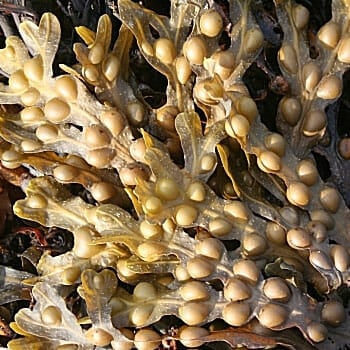
I was skeptical when I first heard of bladderwrack, a type of seaweed with a peculiar name. But after integrating it into my patients diet, the results were undeniable. It’s more than a humble seaweed; it’s a powerful ally against lectins, a claim supported by my experience and scientific research [2].
Both the Atlantic and Pacific coastal areas of the U.S. have plenty of it along the shoreline.
Now, I know what you’re thinking.
There’s no way you’re going to start cooking with some smelly seaweed.
And I’ll be the first to spare you the experience as it’s not exactly a flavor that will have you coming back for more.
Instead, head to a health food store and get a powdered bladderwrack supplement.
It’ll work just as well for lectin blocking.
3. Cranberries

Now we get to a tasty lectin blocker, and it’s also one that is a lot easier to get into your meals than seaweed.
My patients had always enjoyed the tartness of cranberries, but it was a revelation to learn about their rich D-mannose content. This sugary carbohydrate, integral to our metabolism, became a staple in their diet, offering a blend of taste and health benefits.
Studies "Mannose-binding lectin in pre-menopausal women with recurrent urinary tract infections" published in ScienceDirect have shown that mannose may bind to lectin in your system and reduce its negative impact [3].
One word of caution. You might think that a supermarket cranberry juice is your best option.
But in most cases, those juices are too highly processed and full of added sugar and other crap.
Buy them fresh and add them to your breakfast or a fruit salad.
4. Crustaceans
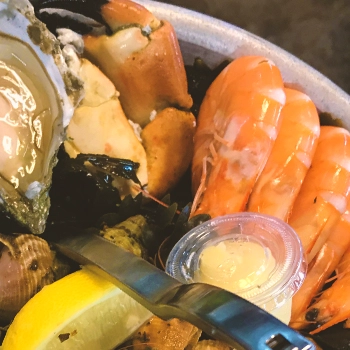
Crabs, lobsters, and prawns are all your friends for a healthy diet. But the shells of these could also prove to be a good way to act as a lectin blocker.
And here’s why.
The shells are full of glucosamine, and several studies, such as "A Soluble Fucose-Specific Lectin from Aspergillus fumigatus Conidia - Structure, Specificity and Possible Role in Fungal Pathogenicity" published in Plos One, have shown that this may be a good way to enhance lectin blocking abilities in your body [4].
But how are you going to eat those shells?
There are two options.
One is to keep shells and boil them off into a broth or stock that you can use for other meals.
Alternatively, you could grind up the shells into a powder and add them to a sauce. It’s simple and adds a bit more flavor as well.
5. Kiwi Fruit
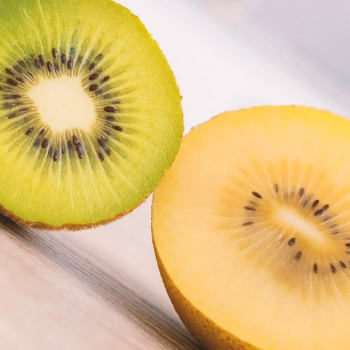
Most people are aware that kiwis work wonders for your digestion. But not many people fully understand why that is.
I can attest to the transformation kiwis brought to my patients digestive health. Their role in promoting mucin production, fortifying the stomach and bowel lining, is not just theoretical but a change they have felt, a testament to the trustworthiness of natural remedies.
Scientists also believe that it may play an important role to act as a lectin blocker by stopping the lectins from being absorbed into your system.
There’s plenty of other benefits from a nutrition perspective, including a good dose of vitamins and antioxidants as well.
So, try to plan your breakfast to include some fresh fruit and add a kiwi a day.
6. Pigs Feet

Pigs' feet, rich in glucosamine like shellfish, are an unconventional but effective lectin blocker.
My granny still talks of the old days when hardly any part of a pig was wasted. Most of what humans don’t buy anymore used to go into a stew or to create a broth.
As a result, they benefited a lot more from this lectin blocker and possibly didn’t suffer as many problems that lectins bring.
It’s pretty easy to introduce most of these foods into your diet, and they should work well enough to avoid problems.
But you could always take another step further to avoid lectins in the first place.
Reducing Lectins In Your Diet

Preventing lectin-related issues can also be achieved by dietary choices that limit lectin intake.
Natural lectin blockers may be a more cost-effective alternative to supplements.
Here are a few things you should consider limiting.
Highly Processed Grains
- Pasta
- White rice
- Tortillas
- Potato chips
- Crackers
- Cakes and pastries
- Cookies
- Non-whole grain bread
Dairy Products
- Yogurt
- Cottage cheese
- Ice cream
Vegetables
- Legumes
- Green beans
- Tofu
- Chickpeas
- Lentils
- Zucchini
- Pumpkins
- Eggplant
- Bell peppers
Seeds and Nuts
- Sunflower seeds
- Chia seeds
- Cashews
- Peanuts
Grains
- Wheat
- Spelt
- Corn
- Barley
Two things I have to say about this list.
First of all, it’s a list of the most common things that people tend to eat a lot of. But it’s not an extensive list of everything high in lectins.
Secondly, you can still plan these into your meals as long as you prepare them well. That means properly cooking them, ideally in a slow or pressure cooker.
The more they are cooked, the more the lectins break down before you eat them.
Why Is It Important To Stay On Top Of Lectins?

Managing lectin intake is crucial as they can interfere with nutrient absorption and digestion.
According to the Harvard School of Public Health, the problem comes from lectins binding to carbohydrates [5].
Because they are resistant to the human digestive process, they then tend to linger and build up, which can cause some uncomfortable side effects.
Depending on how sensitive your stomach is, this could require the help of a lectin blocker.
Are Lectins Harmful For Athletes?
Lectins aren't necessarily harmful for athletes. In fact, I've worked with a few people now who swear that lectin blockers have helped with their weight loss and weight management.
All of these patients had reached a plateau that was way short of weight loss and cutting goals, and in some cases, they started to gain weight without increasing calorie intake.
They overcame that hurdle when they made minor changes to their meal plans and included a few lectin blocker ingredients.
What Should You Look Out For?

In my experience, digestive issues and unchanging weight showed the effects of lectins. It's a personal story, reminding us to pay attention to subtle body signals.
In addition to weight issues, you might encounter a few other health problems that tend to vary a lot. Some people seem more sensitive to lectins, both to their stomachs and immune systems.
If you find that certain meals cause bloating and gas, or even cramping, and you’re also experiencing difficulty with weight loss, then a lectin blocker might be what you need to consider. Regardless, it's better to ask your physician for more information since they might be able to give some advice.
FAQs
Is Oatmeal High in Lectins?
Raw oatmeal is high in lectins, but unlike wheat lectins, cooking oatmeal properly will break down the lectins. That does tend to happen when using it as a breakfast cereal or for bread.
Do Bananas Have Lectins?
Yes, bananas have lectins, and the concentration tends to increase as they ripen. One way to deal with this is to avoid overly ripe bananas, especially if you find that they cause gas or bloating.
Does Coffee Contain Lectins?
Yes, coffee contains lectins because it’s made from a seed. However, all the information we found tends to highlight that the concentration of lectins in coffee is relatively low.
Are Eggs High in Lectin?
Yes, eggs are relatively high in lectin. But unless you tend to eat raw eggs, the cooking process should break down enough of the lectins to not make them too much of a problem.
Are Carrots High in Lectin?
No, carrots are not high in lectins. Even when you eat them raw, the level should be low enough not to cause stomach issues.
References:
- https://www.microbiologyresearch.org/content/journal/micro/10.1099/00221287-147-2-299?crawler=true
- https://www.dadamo.com/txt/index.pl?1024
- https://www.sciencedirect.com/science/article/pii/S1198743X14606820
- https://journals.plos.org/plosone/article?id=10.1371/journal.pone.0083077
- https://www.hsph.harvard.edu/nutritionsource/anti-nutrients/lectins/
About The Author
You May Also Like
